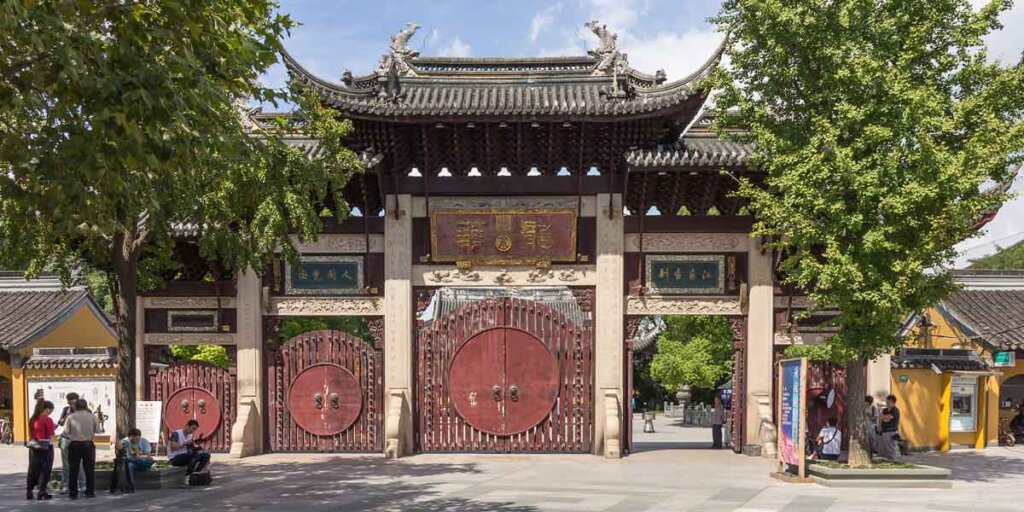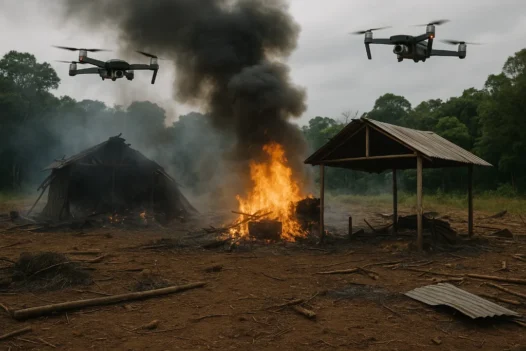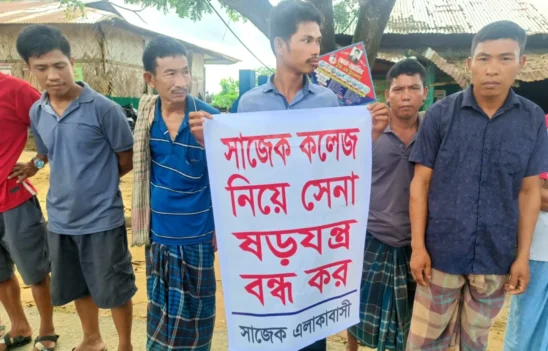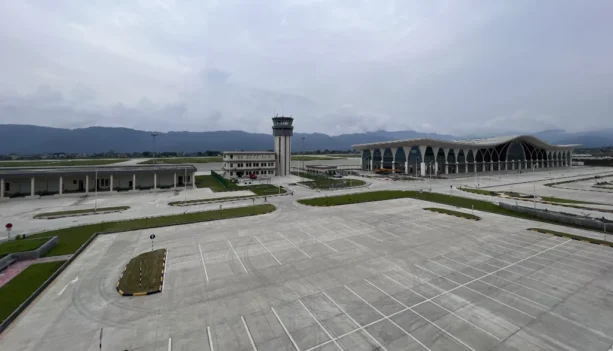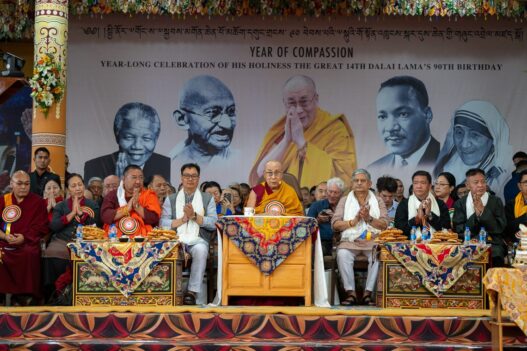Despite Beijing’s vigorous efforts to broker a ceasefire in Rakhine State, the Arakan Army (AA) remains uninterested. According to AA spokesperson Khaing Thukha, a ceasefire will only be considered once their military and political objectives are fully realized.
The conflict has intensified, with the AA inflicting significant losses on the Myanmar junta, prompting some of its soldiers to flee to Bangladesh. In response, the junta has launched airstrikes, which have occasionally struck AA targets on the ground. This escalation worries China, particularly due to the impact on Chinese-led infrastructure projects in the region.
Chinese investments, notably those under the Belt and Road Initiative, have been hampered by the ongoing violence. Projects such as the Kyaukphyu Special Economic Zone, a deep-sea port, and a railway have stalled. A resident monitoring the situation reported that progress on these ventures has come to a standstill due to the conflict.
A senior Rakhine politician highlighted the challenges facing the Chinese projects, particularly the railway intended to connect Kyaukphyu to Mandalay. With ongoing fighting in both Mandalay and Magway regions, and conflicts persisting in Rakhine State, implementation of the railway project appears impossible.
China also has significant interests in the gas and oil pipeline project in Kyaukphyu, which facilitates the transport of oil and gas across Myanmar into China. These pipelines, Myanmar’s largest energy infrastructure project, are crucial to the country’s revenue. However, the renewed clashes between the junta and the Arakan Army, which resumed on November 13, have raised further concerns about the stability required for such projects. The Arakan Army now controls significant portions of southern Rakhine State, although fighting persists.
Amidst the fighting, China has been urging the AA to join peace talks. However, the AA leadership remains resolute against any compromise with the Burma Army, which it accuses of civilian targeting. The AA has stated that it will only engage in political dialogue with a national government that has the support of the Burmese people. Currently, combat between the AA and the Burma Army is ongoing in Maungdaw in northern Arakan and Ann and Thandwe townships in southern Arakan. The AA has established control over extensive territories, including most of southern Rakhine State.
In a related development, the Dhaka Tribune reported that 134 Border Guard Police (BGP) and military personnel who had sought refuge in Bangladesh from AA attacks were repatriated to Myanmar on June 9. These individuals had fled to Bangladesh due to the border conflict earlier this year. In return, 45 Bangladeshi nationals imprisoned in Myanmar were repatriated.
Since the AA’s offensive began on November 13, hundreds of Burma Army and BGP personnel have sought refuge in Bangladesh. The AA currently controls ten towns in Arakan, including Buthidaung Township along the border, and one in southern Chinland. Bangladesh had previously repatriated 288 regime personnel to Myanmar in April.
The continued conflict and China’s efforts to mediate a ceasefire highlight the complexity of achieving peace in Rakhine State. The AA’s firm stance on achieving its goals before considering a ceasefire, coupled with the significant impact on regional infrastructure projects, underscores the challenges facing both local and international stakeholders in resolving this protracted conflict.
Despite Beijing’s vigorous efforts to broker a ceasefire in Rakhine State, the Arakan Army (AA) remains uninterested. According to AA spokesperson Khaing Thukha, a ceasefire will only be considered once their military and political objectives are fully realized.
The conflict has intensified, with the AA inflicting significant losses on the Myanmar junta, prompting some of its soldiers to flee to Bangladesh. In response, the junta has launched airstrikes, which have occasionally struck AA targets on the ground. This escalation worries China, particularly due to the impact on Chinese-led infrastructure projects in the region.
Chinese investments, notably those under the Belt and Road Initiative, have been hampered by the ongoing violence. Projects such as the Kyaukphyu Special Economic Zone, a deep-sea port, and a railway have stalled. A resident monitoring the situation reported that progress on these ventures has come to a standstill due to the conflict.
A senior Rakhine politician highlighted the challenges facing the Chinese projects, particularly the railway intended to connect Kyaukphyu to Mandalay. With ongoing fighting in both Mandalay and Magway regions, and conflicts persisting in Rakhine State, implementation of the railway project appears impossible.
China also has significant interests in the gas and oil pipeline project in Kyaukphyu, which facilitates the transport of oil and gas across Myanmar into China. These pipelines, Myanmar’s largest energy infrastructure project, are crucial to the country’s revenue. However, the renewed clashes between the junta and the Arakan Army, which resumed on November 13, have raised further concerns about the stability required for such projects. The Arakan Army now controls significant portions of southern Rakhine State, although fighting persists.
Amidst the fighting, China has been urging the AA to join peace talks. However, the AA leadership remains resolute against any compromise with the Burma Army, which it accuses of civilian targeting. The AA has stated that it will only engage in political dialogue with a national government that has the support of the Burmese people. Currently, combat between the AA and the Burma Army is ongoing in Maungdaw in northern Arakan and Ann and Thandwe townships in southern Arakan. The AA has established control over extensive territories, including most of southern Rakhine State.
In a related development, the Dhaka Tribune reported that 134 Border Guard Police (BGP) and military personnel who had sought refuge in Bangladesh from AA attacks were repatriated to Myanmar on June 9. These individuals had fled to Bangladesh due to the border conflict earlier this year. In return, 45 Bangladeshi nationals imprisoned in Myanmar were repatriated.
Since the AA’s offensive began on November 13, hundreds of Burma Army and BGP personnel have sought refuge in Bangladesh. The AA currently controls ten towns in Arakan, including Buthidaung Township along the border, and one in southern Chinland. Bangladesh had previously repatriated 288 regime personnel to Myanmar in April.
The continued conflict and China’s efforts to mediate a ceasefire highlight the complexity of achieving peace in Rakhine State. The AA’s firm stance on achieving its goals before considering a ceasefire, coupled with the significant impact on regional infrastructure projects, underscores the challenges facing both local and international stakeholders in resolving this protracted conflict.

